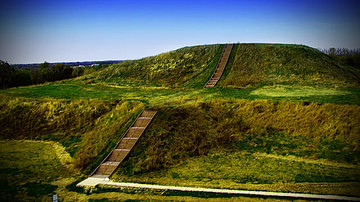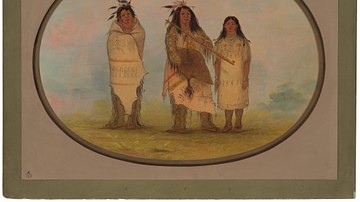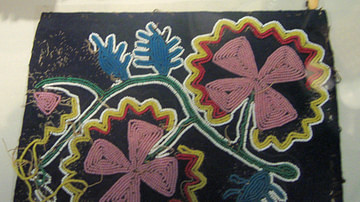Search
Did you mean: Temple?
Search Results

Definition
Canaan
Canaan was the name of a large and prosperous ancient country (at times independent, at others a tributary to Egypt) located in the Levant region of present-day Lebanon, Syria, Jordan, and Israel. It was also known as Phoenicia. The origin...

Definition
Cahokia
Cahokia is a modern-day historical park in Collinsville, Illinois, enclosing the site of the largest pre-Columbian city on the continent of North America. The original name of this city has been lost – Cahokia is a modern-day designation...

Definition
Indus Valley Civilization
The Indus Valley Civilization was a cultural and political entity which flourished in the northern region of the Indian subcontinent between c. 7000 - c. 600 BCE. Its modern name derives from its location in the valley of the Indus River...

Definition
The Hittites
The Hittites occupied the ancient region of Anatolia (also known as Asia Minor, modern-day Turkey) prior to 1700 BCE, developed a culture apparently from the indigenous Hatti (and possibly the Hurrian) people, and expanded their territories...

Definition
Bronze Age Collapse
The Bronze Age Collapse (also known as Late Bronze Age Collapse) is a modern-day term referring to the decline and fall of major Mediterranean civilizations during the 13th-12th centuries BCE. The precise cause of the Bronze Age Collapse...

Article
The Life and Death of Sweet Medicine
The Life and Death of Sweet Medicine is a Cheyenne tale of the great prophet and law-giver Sweet Medicine who received the sacred Four Arrows, structure of government, and rules of society from Maheo, the Wise One Above, and predicted the...

Definition
Ghosts in the Ancient World
A belief in an afterlife was central to every major civilization of the ancient world and this encouraged the recognition of the reality of ghosts as the spirits of the departed who, for one reason or another, either returned from the realm...

Article
Plague in the Ancient & Medieval World
The word 'plague', in defining a lethal epidemic, was coined by the physician Galen (l. 130-210 CE) who lived through the Antonine Plague (165 - c. 180/190 CE) but the disease was recorded long before in relating the affliction of the Plague...

Article
Festivals in Ancient Egypt
The gods of the ancient Egyptians were always apparent to the people through natural events. The sunrise was Ra emerging from the underworld in his great ship, for example, and the moon was the god Khonsu traveling across the night sky. When...

Article
The Nûñnĕ′hĭ and Other Spirit Folk
The Nûñnĕ′hĭ are the Cherokee "spirit people", similar to the fairy as sometimes depicted in European medieval folklore, and The Nûñnĕ′hĭ and Other Spirit Folk is a collection of anecdotes about them compiled by American ethnographer James...